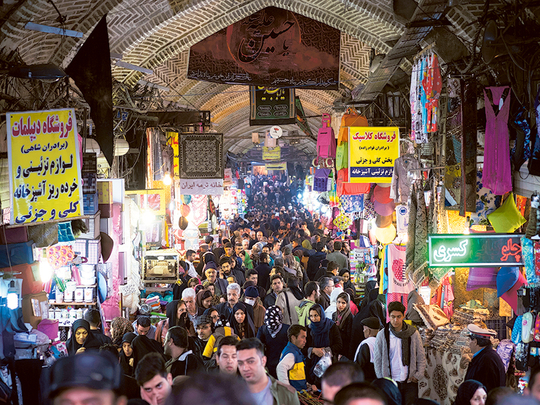
As we predicted last week, European companies have begun withdrawing from Iran one by one, despite European governments’ pressure and activation of a 1996 law to protect their companies from US sanctions. These have not worked in the past and will not work out in the present.
The French oil giant Total announced its intention to withdraw from a project meant to develop the shared Iran-Qatar South Pars natural gasfield with initial investments estimated at $4 billion (Dh14.6 billion). Another energy company Engie also announced its withdrawal from Iran by November in response to US sanctions. The Danish shipping giant AP Moller-Maersk is also terminating its operations in Iran.
Other companies such as the Germany’s Siemens and Allianz Insurance have also announced stops to their Iran dealings. Indeed, there is a disparity between European governments’ position, which is in favour of Iran, and the interests of their multinational corporations. The governments’ position is based on their independence in global relations and is also an emotional one intended to provide a distinctly different attitude to that in Washington.
As for their companies, they are being pragmatic in their position and linked to the profit-and-loss estimations. Total for example invested $40 million out of $4 billion in the South Pars field, which is quite a modest share for an entity this big.
In return, the company received up to 90 per cent funding for its investment in the field from US financial institutions, meaning had it not been for this funding, it would not have been able to continue. It is worth mentioning that Total has received US funding for various projects around the world, which means these would stop in the event of failing to comply with US sanctions.
This comes at a time when it is so difficult to find alternative sources of funding of such a scale. This is in addition to the possibility of stopping Total’s activities in the lucrative US market.
The situation for other European companies operating in finance is no different, meaning similar withdrawals from the Iranian market will follow. This holds true for the air transportation sector, including Airbus, as the US provides 10 per cent of its industrial component supplies. These include the most technologically sophisticated software and speed controllers without which we cannot talk about a modern aircraft industry.
German companies
This means European companies will uphold their interests and not stick to the directives of their governments, a move that reflects a fundamental change in the relation between official attitudes and the interests of large corporations.
The latter and not the governments are determining the economic approaches. This is best evidenced by Germany, which has not involved itself in most of the sanctions imposed by western countries on Russia, under pressure from 6,000 German companies dealing in contracts worth billions of dollars annually with the Russian Federation.
Federica Mogherini of the European Union’s Foreign Affairs and Security Policy and who is very sympathetic to Iran’s cause, said “The EU will not be able to give assurances to Iran about the nuclear deal.”
Apparently getting assurance was the major demand behind the latest visit of Iranian Foreign Minister Javad to Beijing, Moscow and Brussels to save the nuclear deal.
Apart from the interests of Western companies in the US, their interests in the UAE, Saudi Arabia and Bahrain — which have taken a united and solid stance for the sanctions — far outweigh the interests of these companies in Iran.
Although the three Gulf states have not taken a position on European companies so far, it remains highly likely that their interests in the three Gulf states will be affected if they don’t comply with the US sanctions.
Dr Mohammad Al Asoomi is a UAE economic expert and specialist in economic and social development in the UAE and the GCC countries.












